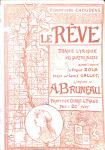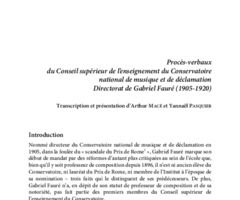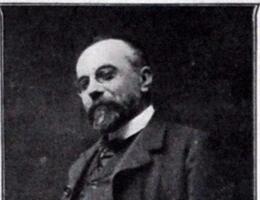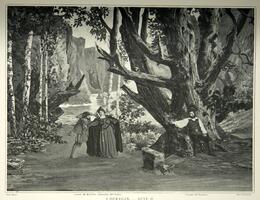
Alfred BRUNEAU
1857 - 1934
Composer, Journalist
The son of a music publisher, Alfred Bruneau did extremely well at the Conservatoire de Paris. He won a premier prix on the cello in 1876 and studied composition under Massenet, receiving second prize in the Prix de Rome in 1881. Although his first opera (Kérim, 1887) was a failure, the young composer made a name for himself in the concert hall with his Penthésilée, an original “poème symphonique avec chant” (symphonic poem with chorus, 1888). His career did not really take off, however, until the 1890s, following his meeting with French writer, Émile Zola. This latter, who was at the time completing his Rougon-Macquart novels and had just tried his hand at writing plays, actively collaborated with Bruneau and the librettist, Louis Gallet, on the adaptation of his novel, Le Rêve, for the opera stage. The work, put on in 1891, experimented with a new genre—lyric naturalism—which the composer illustrated again in the operas L’Attaque du moulin (1893) and L’Ouragan (1899), also based on texts by Zola. The collaboration between the two men also resulted in some lyric prose poems set to music: Messidor (1897) and L’Enfant-roi (1905), the latter composed after Zola’s accidental death (1902). Naturalism, however, fell out of fashion in the early 20th century and the composer’s operas became increasingly less successful. Music critic for the Figaro then the Matin, Bruneau did not merely write operas. His output also includes several works for orchestra (symphonic poems or ballets) and many songs written in the style of Fauré or Massenet.
Scientific publications
Publication
Gustave Charpentier et son temps
Publication
Lettres de compositeurs à Camille Saint-Saëns
Articles













